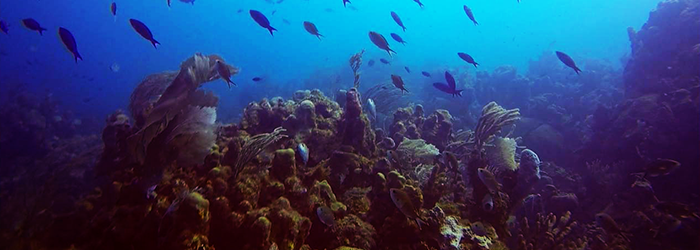Robin Wright to host adult enrichment course.

Coral reefs occupy only a tiny portion (0.1 percent) of Earth's ocean surfaces, yet the habitat they provide sustains life for 25 percent of all marine species. This course provides a comprehensive overview of these exquisite examples of marine architecture, and examines how and why they are under threat, what preservation tactics are being used, and who is at the forefront of reef research.
Coral reefs, those tiny cathedrals beneath the sea, are among the most amazing ecosystems in the world, if not the entire universe. This comprehensive course is a front-row seat to these immaculate structures and the ways in which they contribute not only to the world's oceans, but also to our lives. It also represents the unique opportunity to explore aspects of marine biology in the University of Minnesota's innovative, active learning, biological sciences classroom.
We'll begin with an explanation of exactly how these intriguing systems come into being (it involves a host of curiosities, such as stony corals, polyps, Cnidaria, and jellyfish) and how they are responsible for the well-being of a vast majority of oceanic life. These breathtaking houses occupy less than 0.1 percent of the world's ocean surface (roughly half the size of France), yet they provide life-sustaining habitat for 25 percent of all marine species, including jellyfish, mollusks, fish, worms, sponges, crustaceans, and the tunicate, a tube-like, ethereal creature.
But coral reefs are also extremely fragile, and they are under attack, facing enormous threats from climate change, oceanic acidification, and blast fishing. Participants will learn what is being done to preserve the reefs and who is at the forefront of reef research.
Bonus! Because we don't live near an ocean where we can explore reefs in person, we'll do the next best thing: we'll learn how to set up, maintain, and enhance artificial reefs in a saltwater aquarium.
Participants should wear comfortable clothing/shoes.
Details
Thursdays
April 2-16
6-8 p.m.
St. Paul Campus
Tuition - $125
REGISTER >>